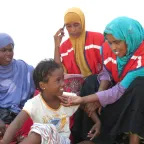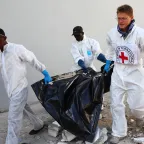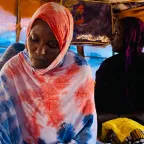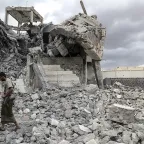Somalia: Reuniting families fleeing from Yemen
Armed conflict and other situations of violence and disasters cause much more anguish than what is seen on the surface. In the midst of terror and panic family members can be separated in minutes. In …
Armed conflict and other situations of violence and disasters cause much more anguish than what is seen on the surface. In the midst of terror and panic family members can be separated in minutes. In …

All States and other parties to an armed conflict have an obligation to respect and ensure respect for international humanitarian law (IHL) in all circumstances. They must use their influence to …
… to stress the negative impact of counter-terrorism measures and sanctions that can … humanitarian exemptions to counter-terrorism measures and sanctions. If …

"We don't have a lack of disasters in Africa." That was one observation made at the 4th Annual meeting of the Africa Society of Forensic Medicine, held in Nairobi, Kenya in March. That in part …

Speech given by Mr Peter Maurer, President of the International Committee of the Red Cross, at the 19th Annual Asian Investment Conference in Hong Kong. Excellencies, distinguished Guests, ladies and …
… name of exceptionalist measures to 'fight terrorism'. Humanitarian aid is targeted and …
… And as States engage in new counter terrorism activities, it is essential that … military and civilian activities blurring; Terrorism and counter-terrorism entrenched in dynamics of conflict; …

… whether designated or not under counter-terrorism regulations and sanctions. What are …

The armed conflict in Mali is brutal for those living there, with families sometimes having just minutes to flee the fighting, their stomachs knotted with fear. Safia,* who is from Gao, was separated …

War in Cities Symposium 28 November 2017, Humanitarium, Geneva. Statement by the ICRC President, Peter Maurer . Tonight, I will start with the broader picture: conflict dynamics and the humanitarian …

Try one of the following resources:
Created in 1863, the ICRC library, alongside the ICRC archives, provides an indispensable documentary reference on the organization itself and international humanitarian law.
International humanitarian law is based on a number of treaties, in particular the Geneva Conventions of 1949 and their Additional Protocols, and a series of other instruments.
Customary international humanitarian law consists of rules that come from "a general practice accepted as law" and that exist independent of treaty law.